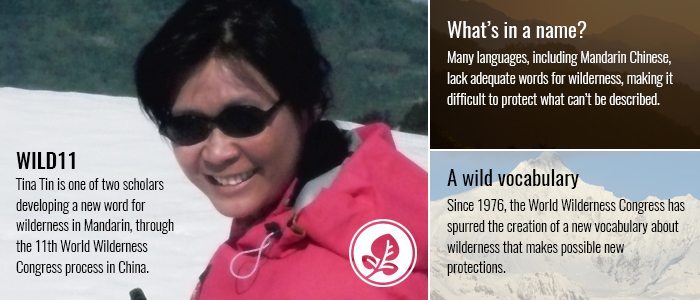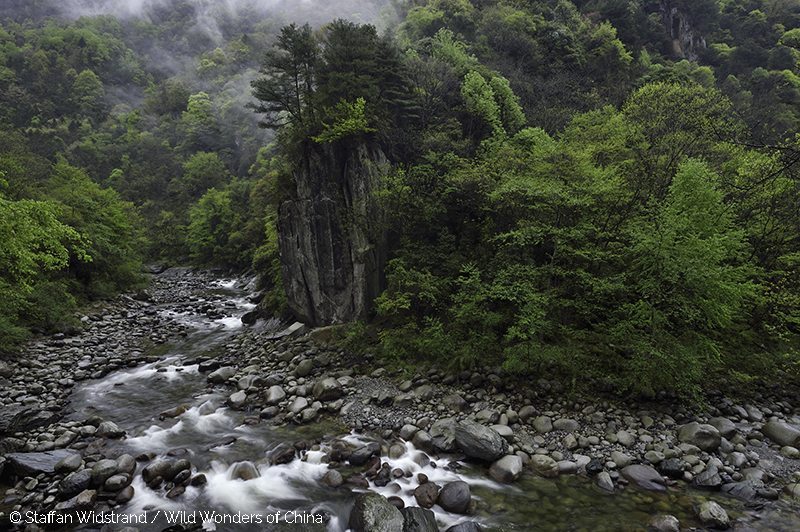In China, a new word for “wilderness” promises new opportunities for environmental protections
Imagine the frustration of describing, let alone protecting, something without a name. It would be like playing a game of charades with no words to draw from the hat and no word to guess in the end. How could anyone win playing such conditions?
The same is true for the natural world. What if I told you that there are many languages that lack an adequate word for wilderness, and that Mandarin Chinese is one of these languages? If a game of charades without words makes victory impossible, what is the outlook for nature when large populations don’t have the words needed to describe what it is so necessary that we protect?

That is why the efforts of two Chinese scholars working through the 11th World Wilderness Congress (WILD11) process are so important. Tina Tin and River Yan are making possible new protections for wild nature in China by innovating a word for wilderness in Mandarin. They hope to devise a word that enables citizens to identify important wild areas within the country and strengthens China’s capacity to protect these life-giving places. By collaborating with government ministries and academic institutions, their work ensures quick adoption of the new word by those best positioned to ensure the longevity of wild lands.
Naming a thing grants the capacity to describe it and protect it. It also enhances our ability to build relationships with that entity. That is why the word “wilderness” is so important. It makes possible a relationship with nature, and all that entails. Wilderness is a word used to describe an area of land that has been left to express its own evolutionary destiny without interference from man. It is a name for a place where biodiversity flourishes, and where people can sometimes go to discover that which is lost and undiscovered in themselves.
The WILD Foundation is proud to aid the work of these pioneering scholars who are building capacity for new wilderness protections in the future. This is just one aspect of the benefits derived from the World Wilderness Congress process as WILD gears up for the actual event planned in China, late 2018. Stay tuned to learn more about the growing accomplishments of WILD11, and how your support of the WILD Foundation makes possible these and other protections for wild nature.
Learn more about the World Wilderness Congress >


” Wilderness is a word used to describe an area of land that has been left to express its own evolutionary destiny without interference from man.” This sounds like a good definition. I hope everybody who uses English agrees to it. Some people seem to think wilderness is something created by biologists after they have restored a place to what they think it was a century ago. That is not wilderness. That is a museum.
I appreciate this effort and only suggest the word humanity be used instead of “man” to be inclusive. Thank you!